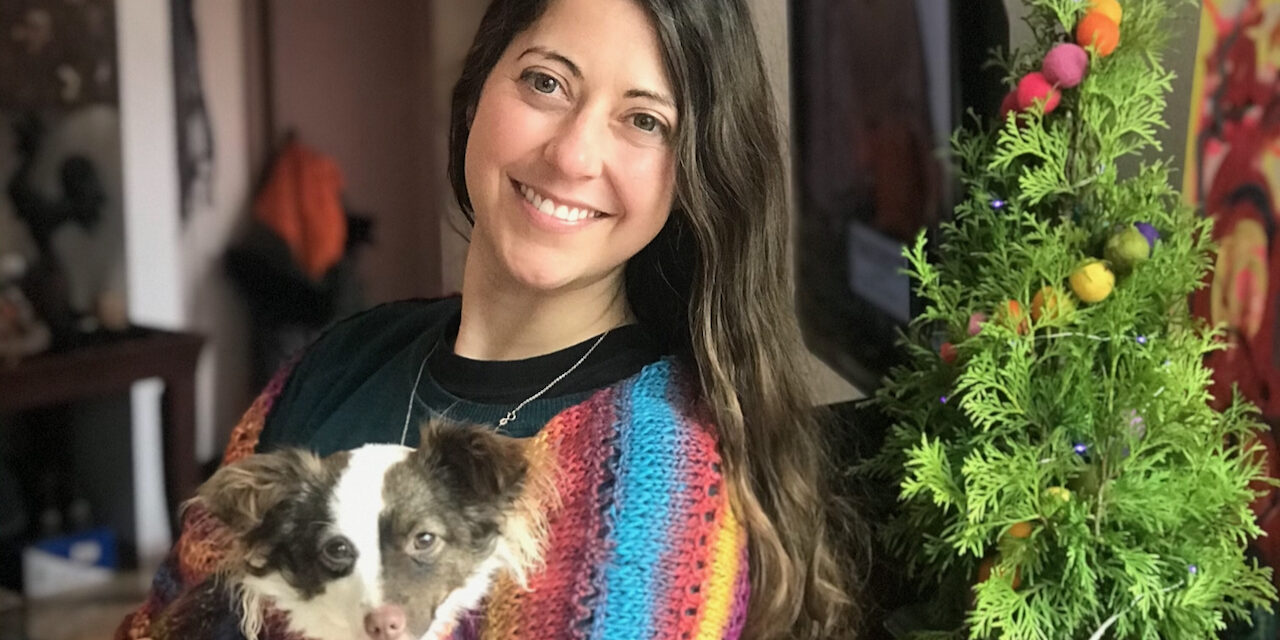It Sometimes Means Forgetting What You Learned in School!
by Annette Pinder
A Buffalo native, my daughter Amy Pinder MA, CCC-SLP is Director and Founder of Circles of Communication. Much as I wish she lived close by, Amy is a New Jersey and Pennsylvania licensed ASHA certified Speech-Language Therapist, who is also certified in the DIR/Floortime model. With more than 15 years of experience in working with autistic children, teens, and adults, her daily goal is finding the spark that connects us all.
Describing the therapy she provides to her clients, she says, “It is holistic in nature, with a focus on the cognitive, linguistic, sensory, motor, social, developmental, and emotional needs of each individual.” Working with clients across a range of settings, she says, “My experiences have taught me to embrace a person-centered and strengths-based approach that celebrates neurodiversity.” For those not familiar with the term, she explains that neurodiversity is a concept that challenges conventional thinking about disability, and that cognitive differences, like autism, are natural variations in the human genome that add immeasurable value to society.
“When I first began working with young autistic children, I felt like I understood them. I also realized that many of the activities they were being asked to perform in school didn’t seem to match their learning style. Many weren’t sensory-friendly. In one situation I observed children watching a movie in a brightly lit room sitting in uncomfortable chairs. Feeling as though I could do more to engage them, I found myself conceptualizing activities that seemed to better meet their needs in a more comfortable setting,” said Amy.
Amy says, “I’ve come to realize that parents of autistic children can sometimes have unreasonable aspirations for their child’s development, often wanting them to behave, play, move, and think in a way that others find acceptable. In working with parents, I encourage them to be more open to learning from and embracing their children for who they are, and to engage with them through play at home, rather than just dropping them off for therapy.”
When asked about her recommendations for people contemplating a career working with disabled individuals, Amy suggested getting to know people who are disabled and learning directly from them. For those investigating colleges and universities, she suggests looking for programs that include coursework on neurodiversity, and emailing professors in advance to ask them how they incorporate neurodiversity-affirming practices into what they teach. Reflecting on her own experiences, she says, “Becoming the best therapist, friend, ally, educator, and parent consultant took years of unlearning what I was taught in school.”
In addition to maintaining a private speech language therapy practice, Amy co-founded Inclusion Festival, an accessible music and wellness festival, and is the Executive Director of Accessible Festivals, a non-profit dedicated to making music and recreation accessible to people of all abilities. Although the event is five hours from Buffalo, previous attendees have traveled from across the nation. Inclusion Festival took place virtually during the pandemic, gaining attention from Forbes Magazine. This year, Amy looks forward to returning to an in-person event. Learn more about how to be involved in this year’s festival at www.inclusionfestival.com and www.accessiblefestivals.org
Although Amy is not licensed to provide speech therapy to those who live in New York, she consults with families regarding play-based therapies and neurodiversity affirming practices. Learn more at www.circlesofcommunication.com or email her at circlesofcommunication@gmail.com.












